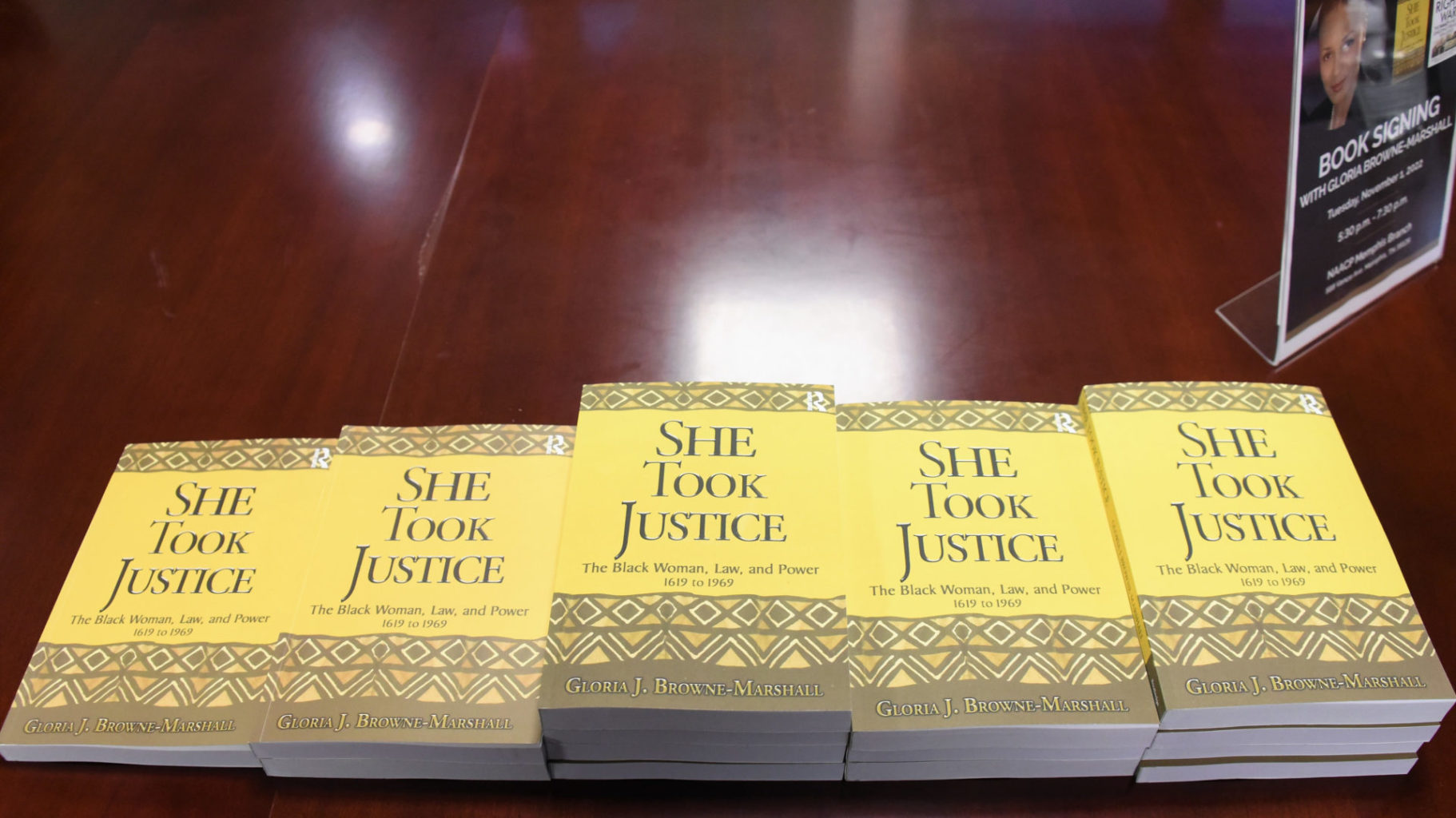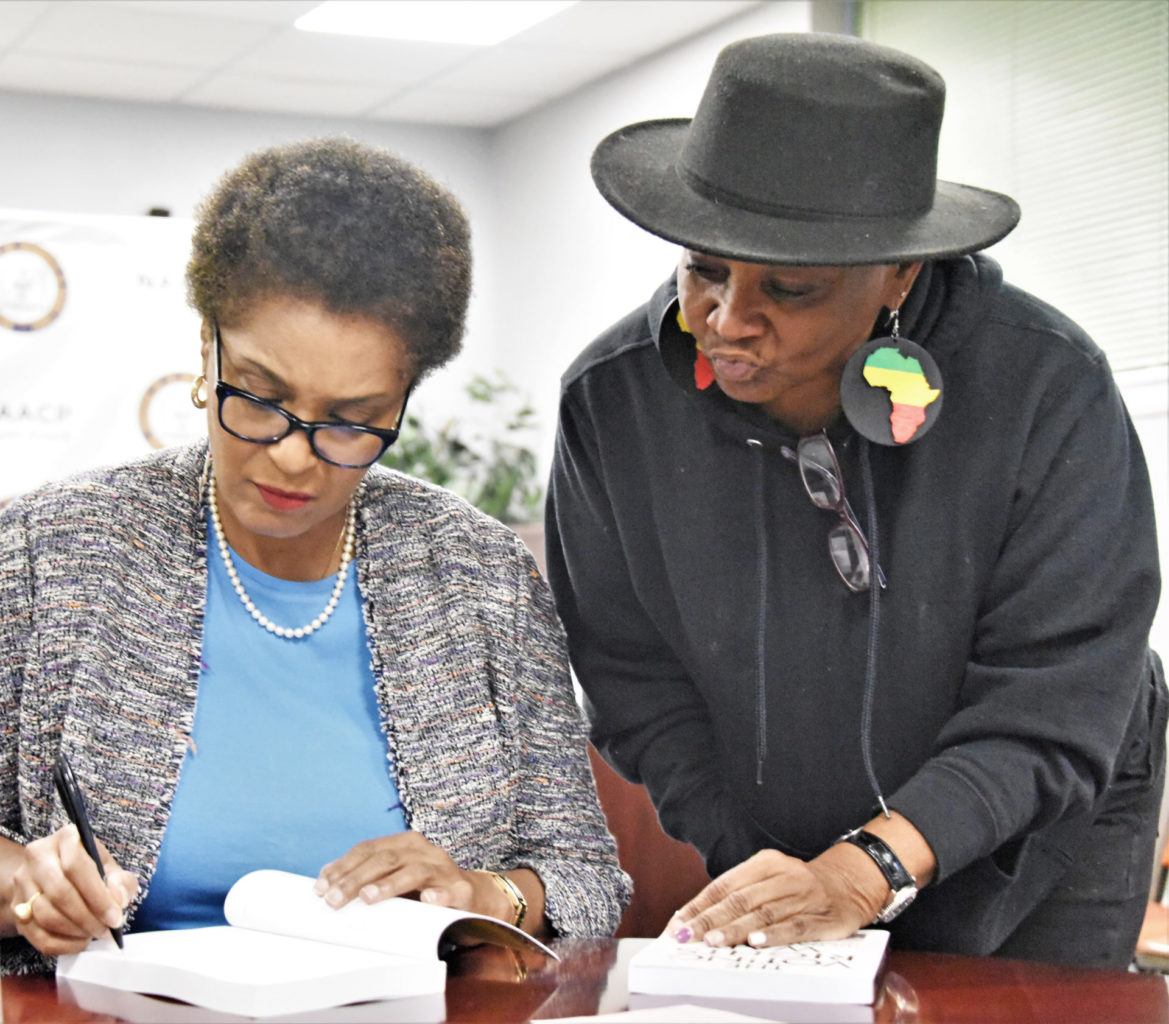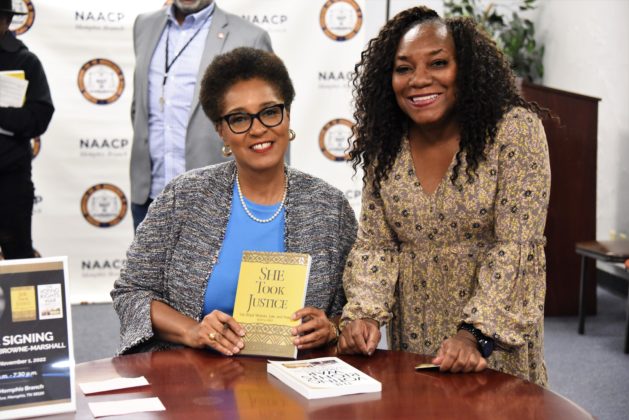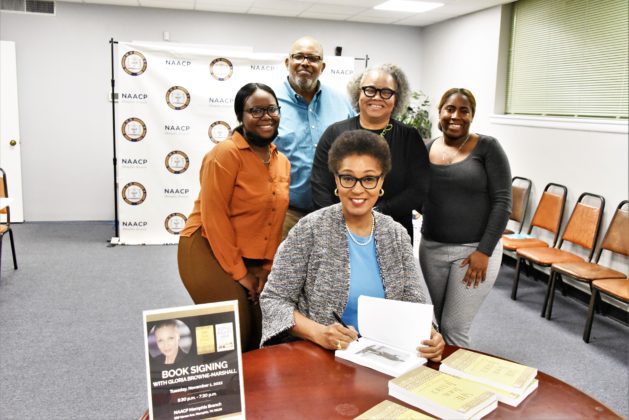It’s been two years since author and civil rights attorney Gloria J. Browne-Marshall penned the book, “She Took Justice: The Black Woman, Law, and Power – 1619 to 1969”. The book contains dozens of carefully researched and crafted stories, supporting Browne-Marshall’s notion that “the Black woman liberated herself.”
Recently signing copies of “She Took Justice” at the NAACP Memphis Branch, the Browne-Marshall explained why – even after two years – the book is just as timely as it was when it was first published.
“At this moment, the power of Black women in political positions is palpable,” she said. “It’s understood that Black women can change the outcome of local, state, and federal elections.”
As Election Day looms on Tuesday (November 8), Browne-Marshall reminds women of their political influence.
“This is a pivotal time for Black women and a pivotal time in history to make your mark,” she said. “But it’s also a time when Black women are under attack in the criminal justice system and increasingly the victims of violence.”
 Browne-Marshall points to a criminal justice system she said is rooted in slavery. One that for centuries denied Black women the right to vote.
Browne-Marshall points to a criminal justice system she said is rooted in slavery. One that for centuries denied Black women the right to vote.
“Black women not only fought for the right to vote but also began running for political office,” she said. “‘She Took Justice’ is full of ordinary women who were presented with extraordinary circumstances who decided to take a stand against an unjust system.”
In the book, readers go on a journey that begins in Africa and continues to the Civil Rights Movement. Capturing women from the years 1619 to 1969, each story reveals courageous acts that intricately weave together their struggles and strengths.
One of the stories featured is that of Ida B. Wells, the writer and anti-lynching crusader, who had roots in Memphis. Wells’ story is even more meaningful to Browne-Marshall, who once received the Ida B. Wells-Barnett Justice Award for her work with civil rights, social justice, and women’s equality issues.

Knowing that Memphis is the city that Wells was forced to leave due to prevailing death threats for speaking out against lynching, Browne-Marshall considered her visit even more profound.
“Many of the stories in the book, I want to go to the place where the women were so that I can feel it,” she said. “It gives me this sort of connectedness to the women – like Ida B. Wells – who I write about in the book.”
In addition to highlighting well-known historical figures, “She Took Justice” tells the stories of women usually omitted from history books but who played an integral role in the fight for equality for Black women.
The narratives include women such as Henrietta Lacks, whose cancer cells were being used and replicated without her family’s knowledge; and Elizabeth Freeman, known as Mum Bett, who walked into a lawyer’s office in the 1780s and said, “I’m suing for my freedom.”
“These women sacrificed themselves and did more with less,” Browne-Marshall said. “So, when we are having moments where it’s difficult to find our way, we can draw inspiration from our ancestors who are our spiritual mentors.”
Browne-Marshall, who considers the stories in “She Took Justice” as inspiration, has seen the effects of it play out in her own life since the book was released.
“When I first wrote the book it was for me and other people. Now it’s for other people and me,” she said. “These stories have been medicine for me and been inspiration in my life.”
GALLERY
Photos: Gary S. Whitlow/GSW Enterprises/The New Tri-State Defender
Recently selected as a 2022 Harvard University Fellow and a visiting professor of public policy there, Browne-Marshall frequently speaks on platforms about the contributions of Black women in law and politics and has gained notoriety for her work in civil rights and social justice.
Still, the author wants to tell more stories that shed light on the rising power of the Black woman while inspiring the collective of women to harness their power.
“‘She Took Justice’ is still relevant – now more than ever – as we see more Black women ascend in power,” Browne-Marshall said.
“The book continues to reveal how the Black woman took laws meant for her oppression and used it for her liberation. Black women must remember just how much power we have always possessed.”






